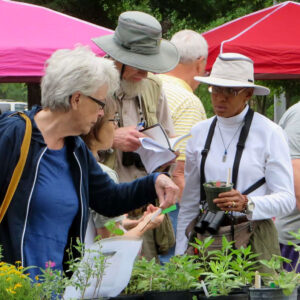These two prolific-but-often-misunderstood vines are quite swell once you get to know them. Best of all, they are both drought-tolerant and popular with winged wildlife.
As I make my way around town conducting irrigation consultations there are two vines that curious homeowners often ask me to identify: Carolina snailseed and possum grape. These are two of the most common, disliked and misunderstood vines in the San Antonio area.
But when you get to know them, you’ll find there’s a lot to like about these unassuming vines.

Carolina snailseed has green heart-shaped leaves and nondescript green flowers. While not that interesting to humans, the flowers’ tiny size appeal to small native pollinators. Keeping one or two of the Carolina snailseeds that will inevitably pop up in your yard will support the diversity of pollinating insects that is required for a healthy ecosystem. The fruits that follow are bright red and the showiest feature of the otherwise plain vine. Birds love to eat the fruits, which is why this vine is so widespread. It spreads via suckers on its shallow root system, so it’s advisable to try and keep it out of flower beds. I have some that grows along my chain link fence and casual mowing keeps it contained.

Possum grape has a three-lobed, fleshy leaf, which has a foul odor if crushed or disturbed. Another common name is cow-itch vine, and sensitive individuals might react to the sap with a rash, so take proper precautions. The yellowish-green flowers grow in small cluster and tend to attract a more diverse crowd of pollinators, and birds are drawn to the small, blueish-black fruits. Possum grape is also the host plant of the Wilson’s wood-nymph moth. I have also seen male and female grape borer moths nearby as well. As a member of the grape family, perhaps possum grape serves as a host plant for them as well.
Both Carolina snailseed and possum grape get bad reputations for their weedy and aggressive nature. But why not consider these “negative” attributes as positive instead? They’re both drought-tolerant and you won’t have to buy either at a nursery — if you don’t have one or the other yet, just wait and a friendly bird will plant one for you sooner or later.
Carolina snailseed twines and possum grape has tendrils, so neither plant will damage what they grow on. If they get too large, just cut them off at the ground and let them regrow, trimming in this way won’t damage them.
Best of all they are both important wildlife plants and that’s one of the reasons they are so widespread.


